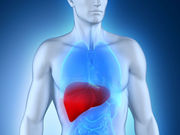Expansion of treatment capacity and of integrated care to address comorbidities is key
WEDNESDAY, Sept. 27, 2017 (HealthDay News) — The U.S. Department of Veterans Affairs (VA) has developed models of care that can be used to reduce the overall burden of hepatitis C virus (HCV) infection, according to a study published online Sept. 25 in the Annals of Internal Medicine.
Pamela S. Belperio, Pharm.D., from the VA Palo Alto Health Care System in California, and colleagues discussed best practices for HCV care that have been developed by the VA as the nation’s largest care provider for HCV-infected patients.
The researchers note that the VA has treated more than 92,000 HCV-infected veterans since January 2014; cure rates have exceeded 90 percent. Expansion of treatment capacity through the use of nonphysician providers, video telehealth, and electronic technologies; expansion of integrated care to address psychiatric and substance use comorbidities; and electronic data tools for patient tracking and outreach are key actions advancing the VA’s aggressive treatment of HCV infection that are relevant to non-VA settings. Regional multidisciplinary HCV Innovation Teams, which have developed HCV practice models that address gaps in care while providing more efficient and effective HCV management, are a critical component of effective implementation. Financing for HCV treatment and infrastructure resources together with reduced drug prices has been important to the success in curing HCV infection.
“The VA is poised to share and extend best practices to other health care organizations and providers delivering HCV care,” the authors write.
Copyright © 2017 HealthDay. All rights reserved.








